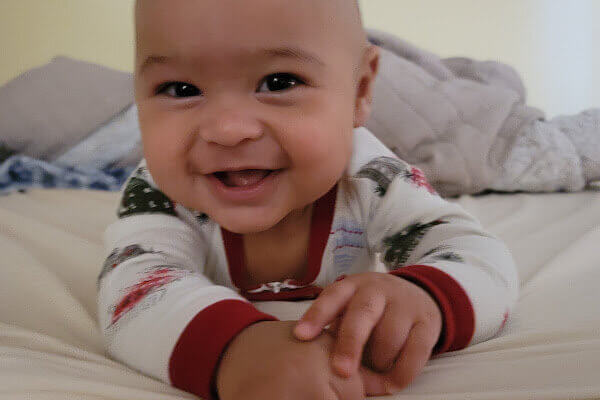Are baby sleep problems plaguing your family? If your little one is having trouble snoozing, a number of factors could be to blame. Here’s what you need to know when your baby can’t sleep—and how to help her have an easier time meeting Mr. Sandman.
Baby Sleep Problem Causes
Sometimes, baby sleep problems are more common in certain kids than in others. “It seems there is a biological predisposition to having sleep problems,” says Jodi A. Mindell, PhD, a clinical psychologist, associate director of the Sleep Center at the Children’s Hospital of Philadelphia and author of Sleeping Through the Night. Other reasons your baby can’t sleep? Colic, ear infections, major changes—whether going on a trip or a developmental milestone—and milk intolerances can also be contributors. Breastfeeding can sometimes lead to baby sleep problems related to falling asleep while feeding. “They are more likely to fall into the habit of nursing to sleep, and needing to be nursed back to sleep when they naturally awaken during the night,” notes Mindell. “Firstborns are also more at risk for baby sleep problems—probably because parents are more anxious with their first child and have more time to devote to things like getting up and rocking the baby back to sleep in the middle of the night.”
What to Do When Baby Can’t Sleep
Other reasons for baby sleep problems could be at play, too. When your baby can’t sleep, she could be too hot or cold during the night, or be interrupted by loud noises or a room that’s not dark enough. “Try to change things in your child’s bedroom environment that may be causing her problems sleeping,” Mindell advises. “Add room-darkening shades to keep out the morning light, or run a fan or a noise machine to mask household and family noises.”
By Alexa Joy Sherman
To be sure to have everything ready for when your newborn arrives, start your baby registry and get a Free Welcome Box!



